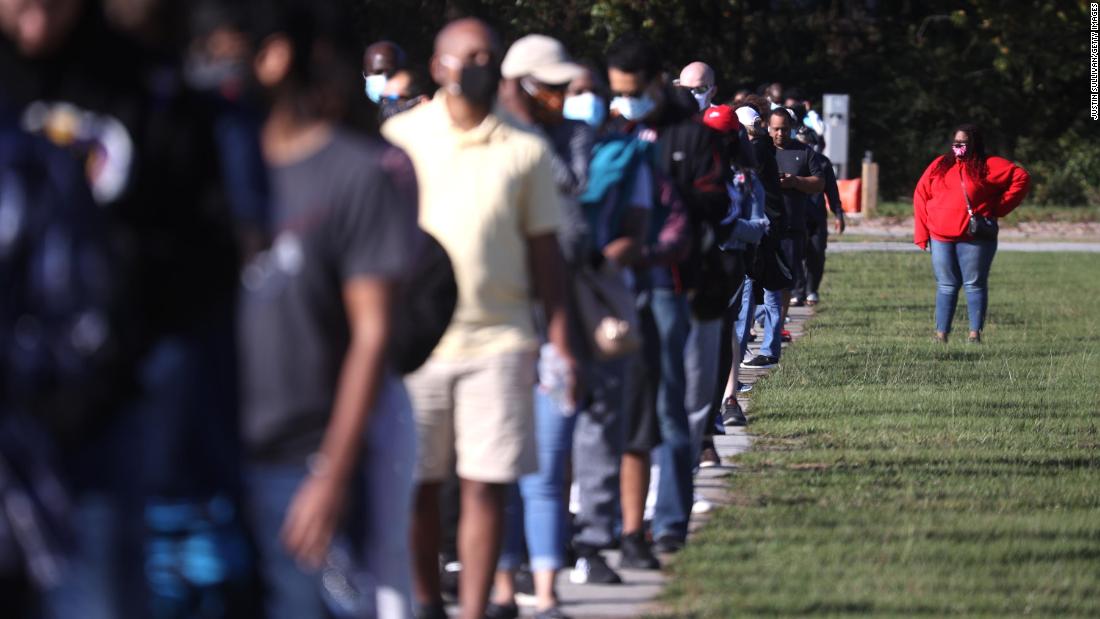“I don’t know if the measures that are being talked about are necessary,” Kacal admitted. “I don’t know how much fraud there really is, but people need the opportunity to vote.”
Both SB7 and the other high-profile, sweeping proposal, House Bill 6 (HB6), spell a harder and scarier voting process for the state’s most vulnerable residents, while outlawing commonsense innovations that Houston’s Harris county tried to implement last year.
From broadly silencing public officials who want to proactively solicit or distribute vote-by-mail applications to doing away with drive-thru voting and limiting early voting hours, the suggested changes could disproportionately affect elderly and differently abled Texans, as well as voters of color and city dwellers. The new policies would also embolden partisan poll watchers to police voters, stoking concerns over intimidation tactics after a history of vigilantism.
“This is targeted legislation at restricting specific voting practices that occurred in specific places, and a lot of those places are places that leaned Democrat,” Brock said. “Which then makes it feel a lot more like voter suppression and a lot less like voter integrity.”
After SB7 advanced through the senate while HB6 dragged, house Republicans used a routine elections committee hearing last week to link the two, circumventing outside input from citizens in the process.
Democratic lawmakers and voting rights advocates excoriated the move, which they noted was unwontedly sneaky for legislators who supposedly had a mandate from their constituents.
“This is a massive overhaul of the election system in Texas, affecting almost every area of our election code,” said Charlie Bonner, communications director at the civic engagement non-profit Move Texas.
“That is something that should be well-considered, and that is something that should go through the full process, and the public have every opportunity to speak out.”
Instead, the committee gutted the senate’s text for SB7 and replaced it with a copy of HB6, effectively turning one bill into the other.
But, if the House passes that version, any differences between the two chambers’ priorities will probably be reconciled in a conference committee. There, appointees could splice text from each proposal together for one behemoth, rife with restrictions.
“I think it is extremely undemocratic. It completely lacks transparency. This is not how democracy and open government are supposed to work,” said Carisa Lopez, political director of the Texas Freedom Network.
Critics of SB7 are still holding out hope for errors that could make it procedurally dead by the end of the legislative session later this month. But they are outraged that stakeholders – who had anticipated another platform to voice their opposition before the bill became law – will no longer get that opportunity.
For weeks, impassioned outcry from state residents and Texas-based corporations has already bogged down the controversial reforms, stalling their passage longer than some voting rights advocates originally expected. The public provided more than 17 hours of divided testimony on HB6 alone, according to the Texas Tribune.
Meanwhile, local businesses, chambers of commerce and major national companies – including Etsy, American Airlines, Warby Parker, Microsoft and many others – have called on Texas’s elected leaders to oppose any changes that would make it harder to vote.
“This is a state in which these lawmakers run every lever of government,” Bonner said.
“The fact that we’ve been able to delay – and the fact that we have seen amendments that have reduced the harm of these pieces of legislation – is a testament to the work and the people speaking out.”






